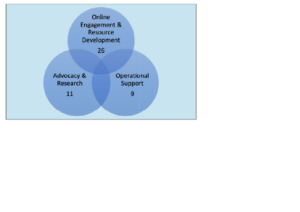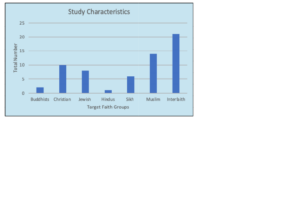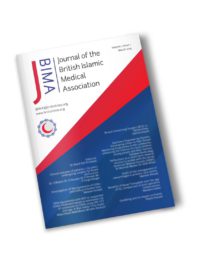
Background
Faith-based organisations are considered part of an area’s voluntary and community sector (VCS). There is a developing role for these organisations to improve access to healthcare services, understand the wider social determinants of health and advocate for minority communities. With higher proportions of COVID-19 cases and mortality seen within BAME communities, the pandemic highlighted the need to leverage the potential role of faith organisations. We sought to investigate their role in addressing COVID-19 vaccine hesitancy and identify how lessons can be applied to future health promotion activities.
Study Design
Scoping review of grey and peer-reviewed literature of faith-based organisation’s role in addressing Covid-19 vaccine hesitancy in the UK.
Objectives
This scoping review aims to identify the methods used by faith-based organisations in addressing vaccine hesitancy
- To assess the extent and breadth of faith-based organisations’ interventions in the community
- To advance knowledge and awareness of initiatives led by faith-based organisations to address Covid-19 vaccine hesitancy
Methodology
PRISMA Extension for Scoping Reviews (PRISMA ScR) guidelines were followed to conduct a scoping review of literature on COVID-19 vaccine hesitancy Peer-reviewed literature databases such as MEDLINE, EMBASE, HMIC, Scopus and Web Of Science were utilised to find relevant articles. A four pronged approach was used to search grey literature: grey literature databases (Ethos, SlideShare), customised google search, targeted websites and consultations with experts. The keywords were generated from the research question and an iterative search strategy was used.
An exclusion and inclusion criteria were developed post hoc. Independent reviewers were used throughout the screening process and resolution of conflicts. The extracted data were synthesized following the narrative approach and results were mapped graphically and tabulated.
Results
A summary of studies/data abstraction table was created to capture the following variables: title, authors, date of publication, organisations involved, target faith group and description of intervention. The extracted data was synthesised following the narrative approach, post -hoc an additional variable was added as it became apparent that organisations had a variety of interventions which could be broadly categorised into 3 areas: Online engagement & Resource development, Advocacy & Research, and Operational support.
Discussion and conclusion
Medical faith organisations showed particular independent strength in online engagement & resource development to address misinformation, run workshops and webinars, translate information, campaigns on social media to advertise vaccinations and engaging with the media.
Operational support was most commonly seen in setting up vaccination clinics at places of worship. This included setting up safe and specialised vaccine clinics in significant community areas, becoming public role models to advertise vaccinations and integrating work with other organisations. Our research identified that there was limited peer reviewed and evaluative documentation of organisations work in advocating for their community. This was in contrast to organisation’s own sites, local news outlets and social media that had more thorough documentation and audit of interventions. However, limitations in methodology included a short time frame for data collection (2 weeks) and consultation with experts’ approach was not fully maximised in the search. This scoping review has highlighted that further research must be funded to evaluate the impact of organisation efforts and further evidence the role of VSCE organisation integration in health promotion activities.



